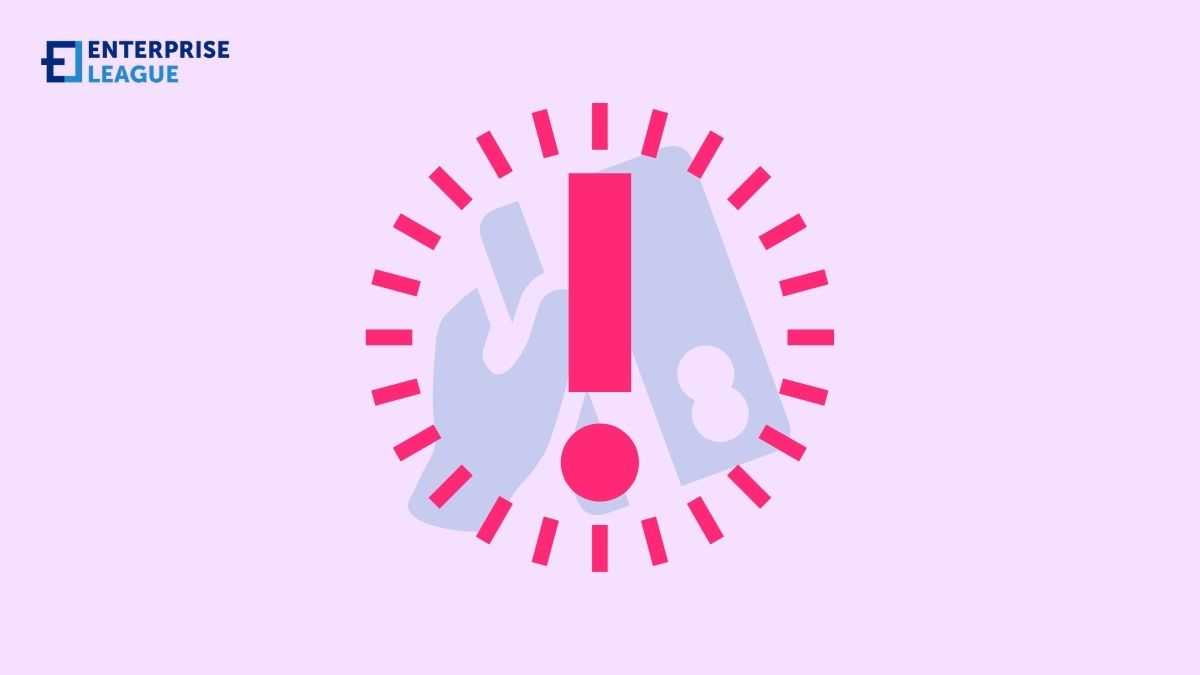It’s been over a month, the invoice is due but your client is ghosting you and you have no idea what to do when a client doesn’t pay – a tale as old as trade. Truth is, it can happen to anyone, regardless if you’re inexperienced or seasoned.
Some business owners learn how to collect money from clients the hard way. However, you get the privilege to learn from their mistakes and be prepared when a situation like this happens, because trust us, it will at some point. Especially in an economic crisis like this, when everyone is facing a shortage of cash.
Several entrepreneurs who learned their lessons the hard way were willing to share their insights and tips on dealing with clients who refuse to pay. For your sake, don’t wait until it’s too late – arm yourself with strategies for getting paid when client won’t pay. There were some radical answers involving baseball bats, but we left them out and you should too.
Most effective 11 ways of dealing with clients who doesn’t pay
As we all know, money makes the world go round. So when a client won’t pay, you’re risking being late on a mortgage payment or disappointing your child because you need to cancel the trip to Disneyland. As late payments can also result in debt management problems, it is best to consult professionals early on – such as the insolvency practitioners. However, there are quite a few important things that depend on your clients paying their invoices on time.
Here are the best ways of dealing with clients who refuse to pay, so your world can keep spinning round and round.
Send an email to notify them
Start by making certain that there is no mention of prices within the subject line. There is no easier means of ensuring that an email ends up going unread if, indeed, the valuation is included with the introductory paragraph, and the email would have had an assured greater likelihood of being considered alternatively.
Simply ask for remuneration and inform them that there is an estimated bill included in the mail and let them know that you have also elaborated on the method of payment for their convenience. To prevent unpaid invoices, utilize Billdu invoicing software, which automatically sends payment reminders.
Elena Jones, PR Director at FinanceJar
Have a contract
You might also add a policy on late fees and penalties, which can be a disincentive to miss payments. You should always solidify the agreed rates and terms with a legally binding contract. It is a binding agreement that will give you more security and obligate them to pay you.
John Cheng. I’m the Co-Founder and CEO of Baotris
Don’t let a customer’s debt to build up too much
The most important thing is not to let a customer’s debt build up too much, keep them paying regularly, and put them on stop if they are outside your business terms. Nobody likes a BIG bill and if a customer hasn’t paid for 2 or 3 months, sometimes longer, the amount owing can be very unpalatable for a client to pay or just make them question your service altogether.
Putting clients on retainers works as well for us as using direct debit and you can even do it through an online payment service, but the best way to get paid is to take the matter to the top, straight to the business owner, often business owners aren’t aware that their accounting department isn’t keeping on top of payments and once you get the MD involved things tend to get sorted out much more quickly.
Don’t take any excuses either, many accounts departments will say ‘we haven’t seen the invoice’ – it’s always a good idea prior to the end of the month to call and make sure they have the invoices in a polite conversation. I’ve always said you catch more flies with honey than you do with vinegar and asking nicely goes a long way further than beginning with threats of a court action which always becomes protracted and ruins future business goodwill.
Simon Young, Managing Director at Institution
Nurture your client relationships
We try to maintain our client relationships so they feel a bit more valued. This can be done by simply checking up on them every now and then, helping them with a problem they may be experiencing, or even by featuring them in our content in some way.
In the past, we’ve worked with not so reputable brands so we decided to deliver the work only after we were paid which worked for us. For those clients who are genuinely struggling, we have offered payment plans to help them pay off their debts.
Paul Gibbens, Marketing Executive at Housebuyers4u
Plan ahead, Keep in touch, Be firm
Keep in touch – Stay in contact with your debtors to find out how they’re getting on and to anticipate any potential problems. Regular communication can also help bolster your relationship with your clients, which is particularly important in a time of financial stress. Our experience suggests that the old adage of a stitch in time saves nine is particularly relevant when it comes to debtors, as a tricky conversation early on can prevent a potential issue from snowballing into something much worse.
Be firm – Make sure that you’re very clear in your conversations with debtors. If you’ve delivered on your side of the contract, the default position remains that you should be paid – and paid on time. Cash is king in the current economic climate, so try to resist the temptation of writing off (or waiting for) what you’re owed. It’s also worth remembering that delays to payments by your debtors could risk a knock-on effect further along the supply chain, as you may then struggle to pay your own creditors on time.
Chris Clay, Managing Partner at Escalate
Before you take dramatic measures, communicate with your client
To rule out simple errors, communicate with your client. If you have a client that doesn’t pay, ensure the payment was not missed due to a misunderstanding or other mishap. It goes without saying that you should avoid burning any bridges unless absolutely necessary.
If a client fails to make a payment on time, contact them and respectfully remind them. They could have miscalculated the date or just neglected to transfer your funds. Depending on the contract, you may be able to request a late fee in following situations. In certain circumstances, the missing money is the result of a technical malfunction or another issue that is not the client’s
fault.
Allowing a little leeway here could be beneficial. Giving the client another chance to fix the problem demonstrates good faith and may result in a glowing review, referral, or additional business.
Kavin Patel, Founder and CEO of Convrrt
Attempt a different method of communication
Alternatively, try contacting someone else within the organization, preferably a member of the same team as your client, to see if they can assist.
Ankit Kaul and I am the Founder and CTO of Excel Trick
Charge interest on invoices
This is legally enforceable, and you have a right to do this. It is known as ‘statutory interest’ and is calculated at 8% (after the invoice is due, accumulated daily from then on) plus the Bank of England base rate. So each year from the due date, an invoice accumulates 8% interest). Should a debt reach debt collection or Small Claims Court, always ensure this interest is properly calculated, and add it on.
Similarly, offer early payment discounts. Perhaps 5% if an invoice is paid within a week (rather than the agreed 30 days). This gives you immediate cash in the bank and rewards good customers, rather than punishing poor ones.
Paul M. Jones, Credit Controller PJS Credit Management
Get in touch with the person in charge
Be nice. It might be tempting to scream down the phone “where’s my money?” but don’t. If they do intend to pay at some time, being polite will help speed things up.
Find the right person. One of the most important things to do when a client doesn’t pay is to check who actually makes the decision as to when payments go through. Is it the person who issued the order, or the finance person? If you’re not sure, ask.
Help them pay you. If a client won’t pay, maybe give them a gentle reminder, a reason to pay you. Detail what you have provided, check there are no issues with the invoice, and make sure they are satisfied with what has been delivered.
Check your contract. Make sure your payment terms are clear, simple, and protect you. Set out exactly when you expect payment. Detail late payment fees.
Moreover, you can consider:
-
- If emails are ignored then call.
- Offer payment by installments – 50% now, 50% next month.
- Letter before action – low cost (around £5 from solicitors or debt collection companies).
- Statutory demand – a bankruptcy threat.
- Money Claim Online – start litigation online (but read the guidance first).
- Invoice factoring – sell on the invoice to a third party.
Susan Francombe, Founder of The Business of Building
As a last resort, seek legal advice
Allowing clients to get away without paying for your services sets a precedent, and you don’t want to come across as someone who is easily exploited. Your first step should be to consult your contract’s Dispute Resolution Clause.
First, take the steps you’ve outlined. This may include a procedure known as ‘arbitration,’ in which you enlist the help of third parties to analyse the problem. If it doesn’t work, you can find yourself in small claims court. This should only be used as a last resort because it will almost certainly be costly, time-consuming, and depleting. Fortunately, many disagreements never reach this point.
Rameez Usmani, Director of E-Commerce and Retail at Selkirk
Disable or withhold the final product
If the client then tries to avoid paying you for your services, you might deny them access to the
project. While it may appear trivial, it is entirely reasonable – your contract states that you would offer the finished product in exchange for a certain amount of money. The client should not get their website or app if you don’t get paid.
Matt Weidle, Business Development Manager of Buyer’s Guide
Conclusion
When it comes to dealing with clients who refuse to pay, it is important to remember that every situation is unique on its own and has to be carefully reviewed before any action is taken. For what it’s worth, long-time, loyal clients cannot be approached the same way as one-time clients.
You don’t want to break a good work bond because of one late payment. When a client won’t pay always try to work things out with a civil conversation. However, if things get out of control remember that in these types of situations, the law is on your side.
More must-read stories from Enterprise League:
- How to handle a situation where employees are not getting along.
- Learn about all the tips and apps you need to successfully manage a remote team.
- Find out which are the most unpredictable costs of doing business.
- These psychological marketing tricks make the difference between thriving and surviving.
- Everything you need to know about the buyyer-supllier relationships and how to make them better.
Related Articles
How to turn your hobby into a business in 2024
How long have you been dreaming to turn a hobby into a business and swim in cash? Stop dreaming, read our article and take action.
Home office security: 10 cybersecurity tips for remote workers
Working from home has become a reality and there are new challenges associated with remote work and maintaining the security of sensitive information.
6 supply chain challenges and how to solve them
When your business works with physical products it won’t be long until certain supply chain challenges arise. Knowing how to deal with these supply chain issues is crucial.
How to turn your hobby into a business in 2024
How long have you been dreaming to turn a hobby into a business and swim in cash? Stop dreaming, read our article and take action.
Home office security: 10 cybersecurity tips for remote workers
Working from home has become a reality and there are new challenges associated with remote work and maintaining the security of sensitive information.





